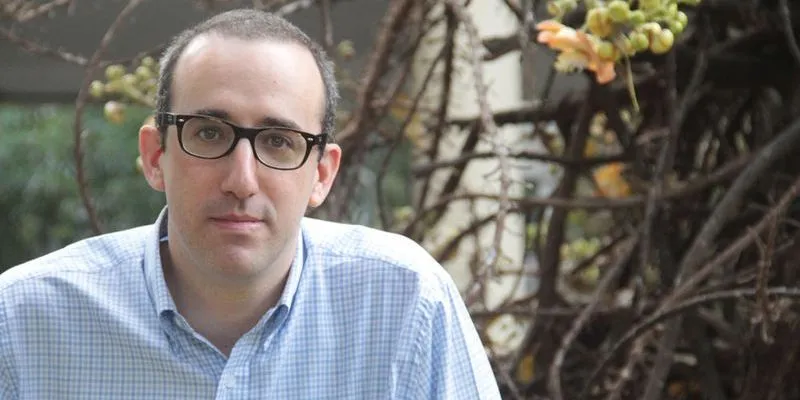[YS Learn] COVID-19 hasn’t changed what we look for, but founder resilience has become more critical: Mark Kahn, Omnivore
In conversation with YourStory, Mark Kahn, Managing Partner, Omnivore – one of India’s first sector-specific VC funds, tells what he looks for in startups.
Mark Kahn, who was heading strategy and business development at Godrej Agrovet (agribusiness arm of the Godrej Group), was “privy to the pipeline of startups" in the sector, having been exposed to rural India and farmer lives.
Entrepreneurs would pitch to corporates since generalist VCs weren’t looking at this sector. But Mark says that it didn’t make sense to Godrej because they didn’t want to put the losses on their balance sheet. That is how the idea of launching an agritech-focused fund came about.
Omnivore (earlier Omnivore Partners) was launched in 2010 as one of India’s first sector-specific VC funds. Mark also roped in Jinesh Shah as his co-founder. Some of its key investments include - , , , and .

Mark Kahn, Omnivore
In conversation with YourStory, Mark talks about what he looks for in startups.
Edited excerpts of the conversation
YourStory (YS): What are you looking for in startups and their teams?
Mark Kahn (MK): When Omnivore assesses startups, we primarily look at the four Ts - Team, TAM (market size), Technology, and Traction. With respect to Team, the company should have founders with strong educational pedigrees and work experience, ideally in other startups. As an agritech-focused VC, we also like to see founders who have some prior exposure to agriculture.
Thankfully, the typical Omnivore founder is an engineer who grew up in rural India! Regarding TAM (total addressable market), we want to make sure that the opportunity being pursued is large enough to warrant venture capital funding.
As for Technology, we want to see tremendous differentiation and ideally, some intellectual property which creates defensible competitive moats over time. Finally, they should be able to show strong early traction, indicating product-market fit. COVID-19 hasn’t changed Omnivore’s selection criteria, but we are currently prioritising more capital efficient business models.
YS: What are the core sector preferences and why?
MK: Omnivore is an agritech VC, so we focus entirely on Indian startups developing breakthrough technologies for agriculture, food, climate resilience, and the rural economy.
Within the agritech sector, we are currently looking at multiple opportunities in farmer platforms, rural fintech, and precision agriculture. We are also looking to do our first Innovative Food deal in 2021, reflecting the increased demand for alternative protein in the COVID-19 era.
YS: What qualities do you look for in the founders?
MK: We look for founders with strong academic pedigrees and work experience. Prior startup experience and/or agribusiness experience is a plus. We also look favourably on founders who grew up in rural India and don’t have to learn the agriculture ecosystem from scratch.
COVID-19 hasn’t changed much for us here, except now founder resilience has become more critical than ever.
YS: What are the key things you look at in a pitch?
MK: Besides the four Ts mentioned above, we try to judge how charismatic a team is when they are pitching us. It’s a good proxy for their long-term ability to fundraise and recruit talent. We also like to see how well they think on their feet, especially when asked hard questions about unit economics and strategy. COVID-19 hasn’t changed much of that either, except now we do this over Zoom.
YS: What dos and dont's should founders keep in mind?
MK: Do think hard about the team you need to succeed, and ideally have the key players on board before you fundraise. Don’t focus on financial projections in your pitch deck, apply your analytical mind to TAM and unit economics instead.
YS: What should founders keep in mind while raising funding in times of crisis like now?
MK: I think the biggest question that founders should ask themselves is how essential their business is. Honestly, it’s an existential question – is what you’re building really important? Under lockdown, agritech startups were allowed to operate because they were essential, too critical to be allowed to fail. The same was true for startups in healthcare, logistics, and edtech. We have so many challenges in India, and it would be great if founders would rise to meet more of those.
YS: What advice would you give founders while they are pitching?
MK: Speak half as fast as you would conversationally. Let multiple team members be present to give a more complete picture of the founding leadership. And don’t forget to breathe.
Edited by Kanishk Singh


![[YS Learn] COVID-19 hasn’t changed what we look for, but founder resilience has become more critical: Mark Kahn, Omnivore](https://images.yourstory.com/cs/2/dc9aa1302d6c11e9aa979329348d4c3e/mark-khan01-1596701978793.jpg?mode=crop&crop=faces&ar=16%3A9&format=auto&w=1920&q=75)
![[YS Learn] India is now exporting ideas. When we meet companies in SE Asia, they say they are the ‘Udaan’ - Prosus Ventures](https://images.yourstory.com/cs/2/a9efa9c02dd911e9adc52d913c55075e/oie6bne0dBigWSx-1606912996565.jpg?fm=png&auto=format&h=100&w=100&crop=entropy&fit=crop)




